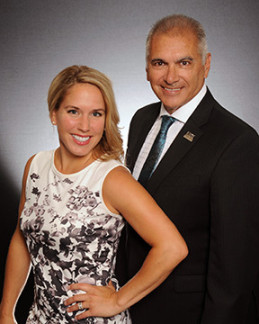What Heirs Should Know About Inheriting Real Estate with Reverse Mortgages
What Heirs Should Know About Inheriting Real Estate with Reverse Mortgages

Homeowners who inherit a home in Minnesota that has a reverse mortgage should be aware of their rights and responsibilities with regards to the reverse mortgage. Here are some important points to consider:
-
Repaying the Reverse Mortgage: The heirs of a property with a reverse mortgage have several options. They can pay off the loan and keep the property, or they can sell the property and use the proceeds to pay off the loan. The good news is, if the sale of the property does not cover the entire loan amount, the heirs are not responsible for the difference. The very first thing to do at this point might be to consult with a knowledgeable real estate professional who is also knowledgeable about the sense of urgency to obtain a valuation of the property right away. This way the heirs can make the necessary decisions regarding the next 4 points to consider.
-
Timeframe for Repayment: The heirs typically have six months to repay the loan or sell the property. However, they may be granted extensions of up to two 90-day periods if they can demonstrate that they are making progress towards repayment or sale.
-
Potential for Foreclosure: If the heirs are unable to repay the loan or sell the property within the allotted timeframe, the lender may begin the foreclosure process. It is important for the heirs to communicate with the lender and seek professional advice to avoid foreclosure.
-
Loss of Equity: In some cases, the reverse mortgage balance may be greater than the value of the property, which means that the heirs will not receive any proceeds from the sale of the property.
-
Counseling Requirement: Before proceeding with any decisions related to the reverse mortgage, the heirs must complete counseling with an approved HUD counseling agency.
It is important for the heirs to seek professional advice from a
Homeowners who inherit a home in Minnesota that has a reverse mortgage should be aware of their rights and responsibilities with regards to the reverse mortgage. Here are some important points to consider:
-
Repaying the Reverse Mortgage: The heirs of a property with a reverse mortgage have several options. They can pay off the loan and keep the property, or they can sell the property and use the proceeds to pay off the loan. If the sale of the property does not cover the entire loan amount, the heirs are not responsible for the difference.
-
Timeframe for Repayment: The heirs typically have six months to repay the loan or sell the property. However, they may be granted extensions of up to two 90-day periods if they can demonstrate that they are making progress towards repayment or sale.
-
Potential for Foreclosure: If the heirs are unable to repay the loan or sell the property within the allotted timeframe, the lender may begin the foreclosure process. It is important for the heirs to communicate with the lender and seek professional advice to avoid foreclosure.
-
Loss of Equity: In some cases, the reverse mortgage balance may be greater than the value of the property, which means that the heirs will not receive any proceeds from the sale of the property.
-
Counseling Requirement: Before proceeding with any decisions related to the reverse mortgage, the heirs must complete counseling with an approved HUD counseling agency.
It is important for the heirs to seek professional advice from a qualified real estate professional who is familiar with reverse mortgages and probate in the State of Minnesota or an attorney or financial advisor who is familiar with reverse mortgages and the laws in Minnesota.
CONSULT WITH AN EXPERIENCED REAL ESTATE PROFESSIONAL
See the Pros and Cons of Buying a Property with a REVERSE MORTGAGE
What Heirs Need to Know When They Inherit a Property with a REVERSE MORTGAGE





